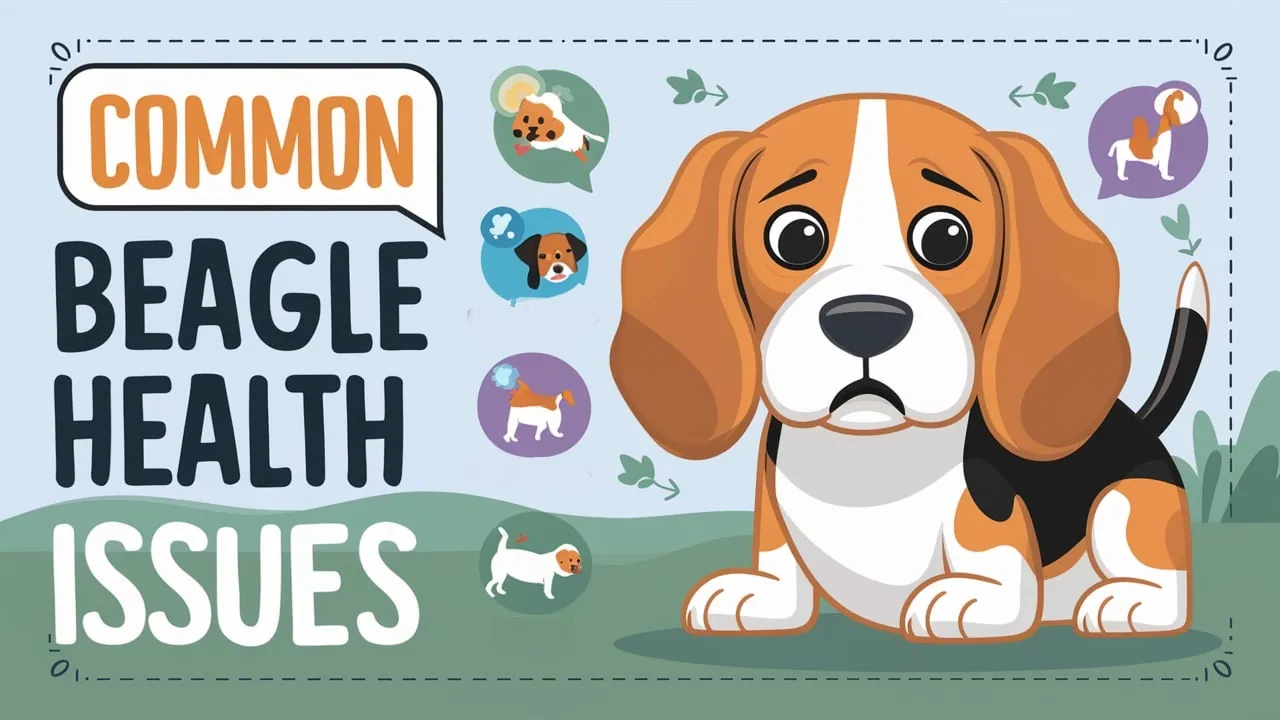Beagles, known for their playful personalities and exceptional sense of smell, have captured the hearts of dog lovers worldwide. While generally healthy, these charming hounds are prone to certain health issues. As a responsible Beagle owner, understanding these potential problems is crucial for ensuring your furry friend leads a long, happy life.
This comprehensive guide delves into the most common Beagle health issues, providing you with essential information on symptoms, prevention, and management strategies.
Hip dysplasia is a hereditary condition affecting many dog breeds, including Beagles. It occurs when the hip joint doesn’t develop properly, leading to discomfort and potential arthritis.
- Stiffness, especially after rest
- Limping or favoring one leg
- Difficulty running, jumping, or climbing stairs
- “Bunny hopping” gait
- Maintain a healthy weight to reduce stress on joints
- Provide regular, low-impact exercise
- Consider supplements like glucosamine and chondroitin (consult your vet first)
- In severe cases, surgery may be necessary
IVDD is a serious condition affecting the spine, potentially causing pain or even paralysis if left untreated.
- Reluctance to move or jump
- Yelping when touched or moved
- Hunched back or neck
- In severe cases, dragging hind legs or inability to walk
- Maintain a healthy weight to reduce spinal stress
- Use a harness instead of a collar to avoid neck strain
- Prevent jumping from high surfaces
- Provide a firm, supportive bed
Beagles are more prone to epilepsy than many other breeds. While it can be distressing to witness, many dogs with epilepsy lead normal lives with proper management.
- Uncontrolled shaking or twitching
- Loss of consciousness
- Drooling or foaming at the mouth
- Temporary loss of bladder or bowel control
READ:- The Ultimate Guide: Ways to Help Your Beagle Lose Weight
- Anti-seizure medications prescribed by your vet
- Regular veterinary check-ups to monitor medication effectiveness
- Keep a seizure diary to track frequency and duration
- Create a safe environment to prevent injury during seizures
Beagles can suffer from both food and environmental allergies, which can significantly impact their quality of life if not addressed.
- Common allergens: beef, chicken, dairy, wheat
- Symptoms: itching, ear infections, gastrointestinal issues
- Triggers: pollen, dust, mold
- Symptoms: itching, sneezing, watery eyes
- Elimination diets to identify food allergens
- Regular grooming to reduce environmental allergens
- Antihistamines or other medications as prescribed by your vet
- Consider hypoallergenic bedding and regular house cleaning
Beagles love their food, making them prone to weight gain. Obesity can exacerbate other health issues and reduce overall quality of life.
- Measure food portions carefully
- Limit treats (no more than 10% of daily calorie intake)
- Provide regular exercise (aim for at least 30 minutes daily)
- Use puzzle feeders to slow down eating and provide mental stimulation
The long, floppy ears that make Beagles so adorable also make them prone to ear infections.
- Frequent head shaking or ear scratching
- Redness or swelling in the ear canal
- Unpleasant odor from the ears
- Dark discharge
- Clean ears regularly, especially after swimming or bathing
- Keep the ear canal dry
- Check ears weekly for signs of infection
- Consider using an ear-drying solution after water exposure
Beagles are prone to dental problems, including gum disease and tooth decay.
- Brush teeth regularly (daily is ideal)
- Provide dental chews and toys
- Schedule professional cleanings with your vet
- Consider a dental-friendly diet
Two common eye issues in Beagles are cherry eye and glaucoma.
- Appearance of a red mass in the corner of the eye
- Usually requires surgical correction
- Increased pressure in the eye
- Can lead to blindness if untreated
- Regular eye check-ups can help with early detection
While this list of health issues may seem daunting, remember that knowledge is power. By being aware of these common Beagle health problems, you’re better equipped to prevent them or catch them early. Regular veterinary check-ups, a balanced diet, daily exercise, and lots of love are key to keeping your Beagle healthy and happy.
Remember, every Beagle is unique, and not all will experience these health issues. However, staying informed and vigilant will help ensure your furry friend enjoys a long, healthy life by your side.
Dr. Sarah Johnson, DVM, a veterinarian specializing in hound breeds, emphasizes the importance of prevention: “Many of these health issues can be mitigated through proper diet, regular exercise, and routine check-ups. Don’t wait for symptoms to appear – proactive care is the best gift you can give your Beagle.”
-
How often should I take my Beagle to the vet?
Healthy adult Beagles should visit the vet at least once a year for check-ups. Puppies, seniors, or Beagles with chronic health conditions may need more frequent visits. Always consult your veterinarian for personalized advice.
-
What’s the average lifespan of a Beagle?
With proper care, Beagles typically live between 12-15 years. Some may even reach 16 or 17 years of age. Factors like genetics, diet, exercise, and overall health care play significant roles in determining a Beagle’s lifespan.
-
Are Beagles good family dogs despite their potential health issues?
Yes, Beagles make excellent family dogs. They’re known for their friendly nature, patience with children, and adaptability. While they may have some breed-specific health concerns, proper care and regular vet check-ups can help manage these issues, allowing Beagles to be loving, active family companions for many years.
